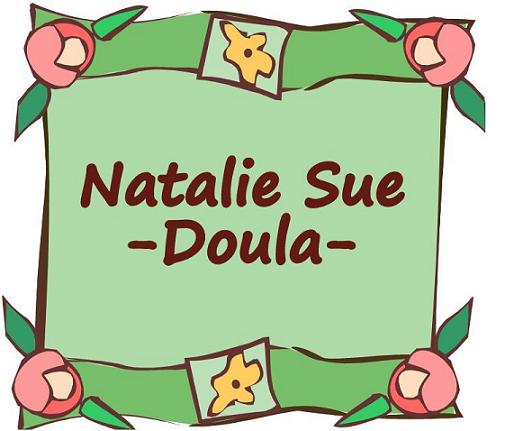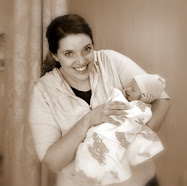"If a doula were a drug, it would be unethical not to use it." -- John H. Kennell, MD
If I could do my daughter's birth all over again - a birth that, because of a pregnancy complication I developed (HELLP syndrome), included numerous interventions - I would have hired a doula. I'd done my birth homework and for some reason I didn't think I needed one nor could afford one, but as I have since learned, having the right doula at your birth can be worth her weight in gold. I think if I had had a doula present at Ava's birth, I would have come away from the experience feeling like I had been better informed (we were left in the dark about so many things) and more of an active participant in my labor instead of a passive recipient. But as the saying goes, live and learn. I have learned and now I will share what I've learned with you.
‘Doula’ (pronounced doo-la) is a Greek word meaning "woman’s servant." Doulas are trained and experienced in childbirth, though they do not handle the medical aspects of it; those are reserved for a midwife or doctor. The role of a birth doula is to provide support for the woman and her partner during labor and birth. This support may include physical support such as suggesting different positions for laboring, giving massages or instructing the woman's partner how to massage her, breathing with her, getting food and drinks for the woman and her partner, etc.; emotional support in the form of reassurance and comfort; as well as informational support such as explaining different medical options, risks and benefits, and possibly suggesting natural techniques to achieve the same results. It is often said that a doula mothers the mother.
The 'Enjoy Birth' blog has a post called "Get a birth doula" that explains the type of support a doula can offer including:
Resource for Comfort Measures: Having a doula is like having your very own talking birthing guide. Doulas know what can help during birth and how to do it. Your doula can either perform these comfort measures herself, or help your family or friends to support you with comfort measures. Your birth partners will feel more confident knowing that they are doing the right thing.
Constant Encourager: A doula not only encourages the mother to keep going, but she encourages the labor support to keep going as well. The process of labor can sometimes be long. A doula can keep you and your partner focused during the most intense part of labor.
Helps Explain Options: A doula is also a source of information about ways to handle your birth. Medical attendants don’t always have time to get into all the options available, and rarely give all the risks and benefits for the options they do give. A doula can help you understand what options are available, and what the pros and cons are. This can help you make better informed decisions.
There are many benefits to having a doula attend your birth.
Proven Benefits of Doula CareDecreased medical intervention in labor*:
- Reduces need for cesarean by 50%
- Reduces length of labor by 25%
- Reduces use of artificial oxytocin (pitocin) by 40%
- Reduces pain medication use by 30%
- Reduces the need for forceps by 40%
- Reduces epidural requests by 60%
Six weeks after birth, mothers who had doulas were**:
- Less anxious and depressed
- Had more confidence with baby
- More satisfied w/ partner (71% vs 30%)
- More likely to be breastfeeding (52% vs. 29%)
*These statistics appear in “A Doula Makes the Difference” by Nugent in Mothering Magazine, March-April 1998.
**Statistics from What is a Doula?
I've heard countless stories from women I know - both in person and on the Internet - singing the praises of their birth doulas. Every one of them feels their birth experience was more positive as a direct result of the support offered by their doula.
Alma from Chicago Moms Blog reflects on her birth and the help she received from her doula - "her hero" - in her post Not Without My Doula.
"It (labor) was really hard, and I couldn't have done it without the support of my doula, Tricia Fitzgerald. ... her dedication and support was worth far more [than] the typical going rate for a doula.
She also squelches the myth that a doula tries to take the place of a woman's husband or partner.
Doulas don't monitor or deliver babies; they're dedicated to mothering the mother, helping her achieve the birth experience she wants. And contrary to what some people think, your doula will not displace your husband. Rather, she just may keep you from cursing out your well-meaning partner who just can't seem say the right thing or rub you the right way."
I think it takes a very special kind of woman to be a doula and Leigh, a fairly new doula and mother of two young daughters, is definitely one of those special women. Leigh writes beautifully about each of the births she attends on her blog Mere Mortal Mama and I soak up every one of them. She seems to possess an ancient wisdom that allows her to be extremely in-tune with her clients. She is committed to helping them achieve the birth they desire. Here's an excerpt from her most recent birth, that of a teen mother:
And then that moment comes; the moment when you notice the slight shift in energy of the room and know it is time to be fully present for your client. I glue myself next to the bedrail and remain over her for the duration of labor. I breathe in deeply with her and exhale slowly, offering the most hushed of encouraging words. We establish a pattern together quickly: we breathe, she cringes and tightens her brow a bit, I press a firm thumb on her forehead and smooth her brows, she relaxes and breathes out. I stroke her hair as the surges release; she lets out a cleansing breath. Our fingers entangle as she rests between the surges.I whisper breathy words and phrases into her ear and have no idea where they are coming from. Upon speaking some of them, her head nods in barely perceptible understanding – her eyelids fluttering closed - and so I stick with those.And it is those moments where ego and heart humbly meet, swollen like a balloon about to burst. Two women, in rhythm to the song of labor, swaying into words and sinking into breath; connected through the pulse of birth.
I believe that - "two women ... connected through the pulse of labor" - sums up simply and perfectly what the experience of having a doula is meant to be. I think that all women and their partners should consider giving themselves the gift of a doula.
To learn more about doulas, including how to find one in your area and questions to ask when interviewing a doula, see the additional resources below.
Additional resources:
DONA (Doulas of North America) International - Learn more about doulas as well as find doulas in your area
CAPPA: Childbirth and Postpartum Professional Association
How to hire a doula - Questions to ask
How Dads/Partners and Doulas can work together to support the birthing mother
Information about Postpartum Doulas who's role is to help a woman through her postpartum period and to nurture the family
DONA (Doulas of North America) International - Learn more about doulas as well as find doulas in your area
CAPPA: Childbirth and Postpartum Professional Association
How to hire a doula - Questions to ask
How Dads/Partners and Doulas can work together to support the birthing mother
Information about Postpartum Doulas who's role is to help a woman through her postpartum period and to nurture the family
Contributing editor Amy Gates also blogs about attachment parenting, activism, green living and photography atCrunchy Domestic Goddess.


